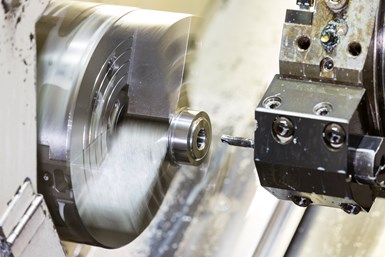How Do We Fix American Manufacturing?
In America, many have lost sight of the fact that the object of the act of manufacturing is not merely the generation of maximum profit, but instead the creation of value.

In America, many have lost sight of the fact that the object of the act of manufacturing is not merely the generation of maximum profit, but instead the creation of value. Many have lost sight of the idea of self-sufficiency in our race to the bottom for the lowest global price. Many have lost a sense of economic patriotism by ignoring the production of our natural neighbors so that we can get the lowest possible price from strangers overseas.
As MBA finance culture takes control of corporate board rooms, (full disclosure, I am an MBA), the emphasis is on optimizing for financial instead of noneconomic “indicators of success.” The focus is on supply chains rather than loyalty to constituents, communities and manufacturing ecosystems. But the blame is not solely on the MBAs and capitalists. It is on everyone.
- It is on us as parents, who say that manufacturing is a great career for someone else’s kid, but “ours need to go to college.”
- It is on the politicians who paint the middle-America-Buy-American crowd as “Bitter clingers” not up to speed with the sexy new global reality that funds their campaigns.
- It is on the folks who race to buy the latest technology from overseas, and the lowest priced goods from “big box” and discount “dollar” stores. I don’t recall the labor share of profits ever being lower in this country.
How do we fix?
The question isn’t “Why?” The question today is, “How do we fix?”
- Create value, not just profits. Value includes meaningful work for our neighbors and quality products that are useful to buyers and society. Profits are the result of creating value, not the cause.
- Economic patriotism. As consumers, we need to acknowledge that loyalty to our friends and neighbors might be as important as saving a few bucks on products made overseas where the costs and worker protections are far, far lower.
- We need to once again recognize the dignity of work, and value a job well done. We need to acknowledge the fact that our economic support of our community is an essential means to creating a just and productive society.
- Invite critical thinking back into our lives. We want to buy local food so we can see where it was grown, so we can have a relationship with the people who grow it. We need to abandon our blind trust that manufactured goods from “over there” are magically just as good as what our friends and neighbors could make here in our zip code. We need to hold foreign goods to same levels of regulatory and labor standards as we hold our local manufacturers.
- Refocus on production and creation, not profits. What is the object of the act? Western culture seems insanely focused on profit and wealth accumulation. Nowhere do we read that the object of the act just might be the “existential joy of manufacturing” — where our talents, capital and creativity turn raw materials into items of utility, quality of life and creation of joy. Instead of expecting instant career success through college (and debt), we can consider a longer game where we grow and develop as humans creating and accumulating value for our communities, societies, our families and ourselves.
- We need to re-value the talent and knowledge and capabilities of our human performers. Our performers and their talents are currently greatly discounted compared to money in the bank. What do we value? What do we treasure? As individuals? As employers? As a society?
Have we traded our morals and values for profits? False profits and false savings are gained at the expense of our neighbors’ jobs. At the expense of having a robust and resilient economy. At the expense of huge gaps in our collective capabilities, due to having given away manufacturing expertise. Jobs and pollution weren’t the only exports to Asian manufacturing. Agency and knowledge to make things that matter went with them.
Rediscovering True North
Rediscovering True North is the understanding that the basis of our individual success is also the foundation of our community’s success. And that as our communities succeed, so do we. If decision-making is reframed from profit maximization at any cost, the lens of economic patriotism can be moved to recognize dignity of work, value in (and pride of!) creation and shared community values.
Recognizing that profits are a result of manufacturing — and not the goal of manufacturing — is essential to restore dignity to American manufacturing and economic patriotism. In target shooting, aiming at the right target is crucial. The results can change when American business (and consumers) stops aiming at the cheapest price and maximum profits target. Profits are the result of manufacturing, not the cause. We need to change our aim for values, community and America.
Mastery of our craft, of our materials, creation of production capability, these can lead us to mastery of our world, mastery of our fate. Manufacturing engineering, not financial engineering, is the sustainable way back to lives worth living. How do we change our economic incentives to reflect this?
Read More Articles from PMPA:
COVID-19 Effects on the Manufacturing Workforce
A Commitment to Reducing Machining Times
Craftsman’s Cribsheet: Contract Review — Thought Starters
About the Author
Miles Free III is the PMPA Director of Industry Affairs with over 40 years of experience in the areas of manufacturing, quality, and steelmaking. He helps answer “How?, “With what?” and “Really?” Miles’ blog is at pmpaspeakingofprecision.com; email: mfree@pmpa.org; website: pmpa.org.
Related Content
A No/Low-Cost Solution to Employee Retention
Studies show a little employee recognition goes a long way. Here are the 5Ws to consider for success.
Read MoreCraftsman Cribsheet No. 128: Why Do Machinists Say Tenths Instead of Ten Thousandths?
In machinist parlance, a tenth is a tenth of a thousandth, not a tenth of an inch.
Read MoreCraftsman Cribsheet No. 126: AISI System of Identification
Source: PMPA Prior to the Society of Automotive Engineers taking responsibility for Steel Grade nomenclature in the United States (1995), the American Iron and Steel Institute determined U.S. standard steel grades in collaboration with SAE.
Read MoreTurned and Polished Steel Barstock: How It Is Manufactured, How It Impacts Your Shop
Understanding the benefits provided by turned and polished steel barstock and its differences from cold-drawn steel barstock can help you and your team avoid unexpected performance issues.
Read MoreRead Next
5 Aspects of PMTS I Appreciate
The three-day edition of the 2025 Precision Machining Technology Show kicks off at the start of April. I’ll be there, and here are some reasons why.
Read MoreA Tooling Workshop Worth a Visit
Marubeni Citizen-Cincom’s tooling and accessory workshop offers a chance to learn more about ancillary devices that can boost machining efficiency and capability.
Read MoreDo You Have Single Points of Failure?
Plans need to be in place before a catastrophic event occurs.
Read More









.jpg;maxWidth=300;quality=90)













